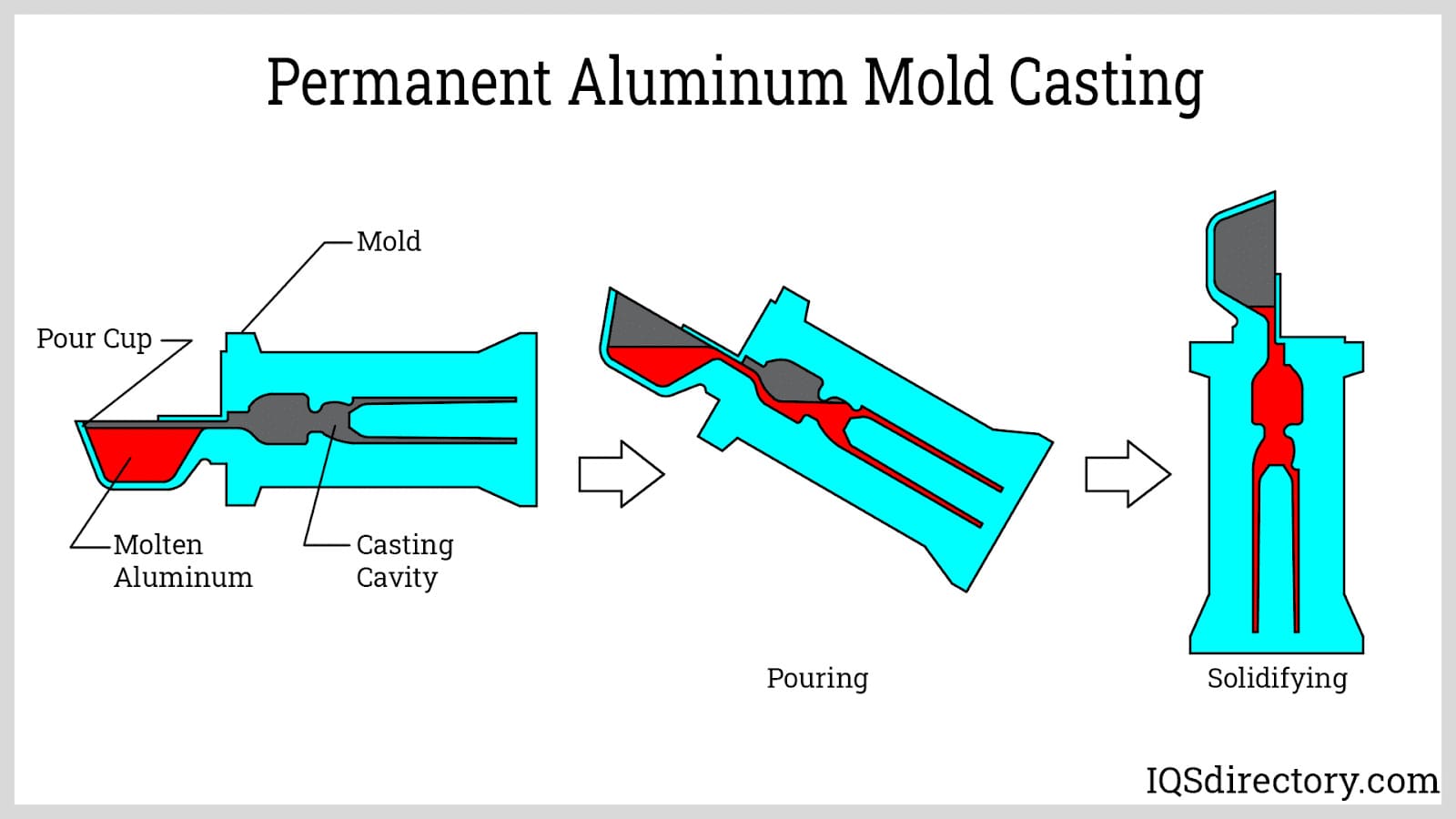Stahl Specialty Company Fundamentals Explained
Stahl Specialty Company Fundamentals Explained
Blog Article
The 20-Second Trick For Stahl Specialty Company
Table of ContentsThe 7-Second Trick For Stahl Specialty CompanyThe Best Strategy To Use For Stahl Specialty CompanyThe Definitive Guide for Stahl Specialty CompanySome Known Factual Statements About Stahl Specialty Company The Single Strategy To Use For Stahl Specialty Company
There are numerous small differences between functioned and cast aluminum alloys, such as that cast alloys can consist of much more significant quantities of other metals than wrought alloys. Yet the most notable distinction between these alloys is the fabrication procedure where they will go to provide the end product. Other than some surface area treatments, cast alloys will exit their mold in practically the exact strong type preferred, whereas functioned alloys will certainly go through a number of adjustments while in their solid state.If you think that a wrought alloy might be the most effective for your job, take an appearance at several of our articles that describe even more about specific functioned alloys, such as Alloy 6061 and Alloy 6063. On the other hand, if you believe an actors alloy would certainly be better for you, you can discover more regarding some actors alloys in our Alloy 380 and Alloy 383 posts (coming soon).

Having the experience and market knowledge to craft your castings for ideal production and quality outcomes will certainly enhance the task. Producing aluminum spreading calls for a facility set of procedures to achieve the ideal results. When choosing a brand-new aluminum foundry to partner with, ensure they have comprehensive industry experience and are educated about all elements of the light weight aluminum spreading process: design, production, product evaluation, and item screening.
How Stahl Specialty Company can Save You Time, Stress, and Money.
The shop should additionally have a proven performance history of delivering outstanding items that fulfill or surpass customer assumptions. Quality control should also go to the top of your list when picking a light weight aluminum shop. By functioning with a qualified foundry that follows the criteria for quality assurance, you can protect the integrity of your product and guarantee it meets your specifications.
By choosing a firm that supplies solutions that meet or surpass your product needs, you can be sure that your project will be completed with the utmost accuracy and effectiveness. Different find parts require various manufacturing strategies to cast aluminum, such as sand spreading or pass away spreading.

Die spreading is the name provided to the procedure of producing intricate metal components via usage of mold and mildews of the part, additionally known as dies. The procedure utilizes non-ferrous metals which do not contain iron, such as light weight aluminum, zinc and magnesium, because of the preferable properties of the metals such as low weight, higher conductivity, non-magnetic conductivity and resistance to deterioration.
The Definitive Guide to Stahl Specialty Company
Die spreading production is quickly, making high manufacturing levels of parts easy. It generates even more components than any other process, with a high degree of accuracy and repeatability. To find out more regarding die casting and die casting products used in the process, kept reading. There are 3 sub-processes that drop under the classification of die casting: gravity pass away casting (or permanent mold and mildew spreading), low-pressure die spreading and high-pressure die casting.
No matter the sub-process, the die casting procedure can be damaged down right into six steps. After the pureness of the alloy is examined, passes away are produced. To prepare the needs casting, it is necessary that the passes away are tidy, to ensure that no deposit from previous manufacturings remain. After cleaning, the ejection lubrication is put on the die to guarantee a smooth release.
The pure steel, likewise known as ingot, is included in the heating system and maintained the molten temperature level of the metal, which is after that transferred to the shot chamber and infused into the die. The stress is then kept as the metal strengthens - Foundries in Missouri. As soon as the metal strengthens, the cooling process starts
The thicker the wall surface of the component, the longer the cooling time due to the quantity of indoor steel that additionally requires to cool down. After the part is totally cooled down, the die cuts in half open and an ejection system pushes the element out. Following the ejection, the die is closed for the following shot cycle.
About Stahl Specialty Company

Today, leading producers utilize x-ray testing to see the entire inside of elements without reducing into them. To get to the finished item, there are three primary alloys utilized as die spreading material to choose from: zinc, light weight aluminum and magnesium.
Zinc is just one of the most pre-owned alloys for die spreading as a result of its lower expense of resources. It's additionally one of the stronger and stable metals. Plus, it has exceptional electrical and thermal conductivity. Its corrosion resistance likewise permits the components to be durable, and it is among the extra castable alloys due to its lower melting factor.
The 5-Minute Rule for Stahl Specialty Company
As pointed out, this alloy is among one of the most generally made use of, yet manufactures will, sometimes, choose light weight aluminum over zinc due to light weight aluminum's production benefits. Light weight aluminum is extremely cost-effective and among the more functional alloys. Light weight aluminum is used for a variety of different products and industries anything from window frameworks to aerospace products.
Report this page